Opportunities for Universities in Colombia
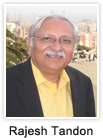
“I do not know if I can make this commitment? My family and my university may not support such engagement?”
“This is a historic opportunity to contribute to creation of a new Colombian society; universities must come forward to engage.”
Such ambivalences and dilemmas were expressed by dozens of academics in dialogues held at Bogota and Cartagena over the past week.
After more than five decades of armed struggle between FARC rebels and the military of the state of Colombia, a historic peace accord was signed last year. President Santos also received Nobel Peace prize for this achievement. However, Colombian society is highly polarized in respect of its support or opposition to this accord. And, implementation of all the elements of the accord is already under pressure.
Nearly 7000 armed FARC rebels, as per the accord, will lay down their arms under UN supervised process by end of June 2017. They have been staying in 26 ‘transitory normalization zones’ all over the country. As of last week, 30% of arms had been surrendered, and the process is on track.
However, the government is yet to deliver its part of the commitment with respect to housing, water, livelihood (including land reforms) and financial support to each FARC rebel.
And, the time is running out, because military, armed militias and a majority of the economic elites in Colombia are not in favour of granting these to former rebels. Resistance and denial is happening at all levels.
It is in this delicate context that Colombian academics have been having thoughtful conversations about ways in which they can make a contribution. A dialogue with nearly 100 academics from National University and a few others was held in Bogota last week.
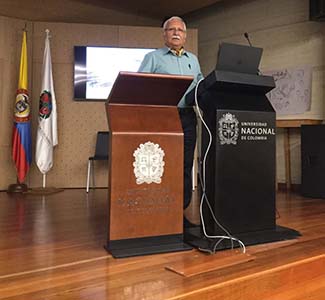 |
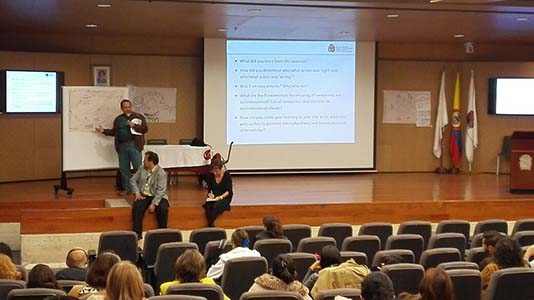 |
Another conversation was held in Cartagena yesterday, initiated by Dean of Engineering of University of los Andes. Speaking to the gathering yesterday, the Dean asked academics from ten universities to work together in those regions by engaging with the peace process in order to make the voices of the former rebels and other citizens heard by the government and the military. In the long run, changes in the curriculum and research agenda must be made to sustain the benefits to future generations.
Joining this conversation, the Vice Minister for Education Natalia Ruiz informed that the government is committed to support universities in such an engagement, so that new forms of sustainable self-managed community solutions may be implemented as part of the peace process.
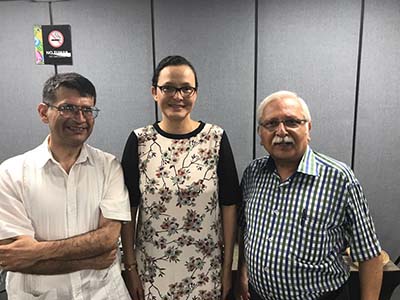 |
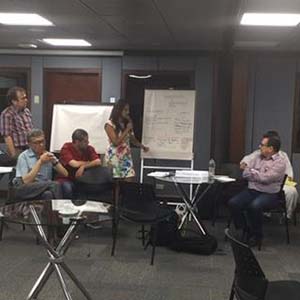 |
The conversations in Bogota focused on the current perceptions about universities as aloof elite institutions as likely barriers to engagement. Additionally, several academics were unsure of the support from university leadership for such a risky effort on their part.
Intervening in these conversations, I suggested that engagement is worth the risk in this sensitive context of peace-building in Colombia. In my view, two initiatives can be taken urgently.
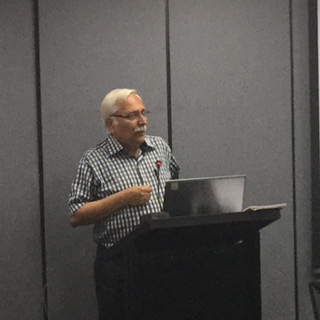 |
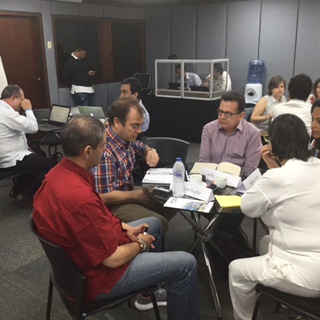 |
First, taking advantage of the somewhat neutral and respected position of the universities in Colombia, they can facilitate convening of conversations across conflicting perspectives of different stake-holder groups—former FARC rebels, military, local government, citizens, business and others.
However, authentic conversations in present context of mutual mistrust and hostility would require sensitive and firm facilitation by all university actors—rectors, deans, faculty, students, staff. Speaking truth to powers may be easier said than done.
Second, a quick and necessarily early step is to engage with former FARC rebels and local citizens around those zones to listen to their voices in a respectful manner. Drawing on community-based participatory research methodology, groups of faculty and students from local universities may initiate such ‘listening’ research so that hitherto unheard voices can be amplified for attention of government leaders and urban elites.
Engagement with society by universities under best of circumstances is risky. Colombian peace context at present poses many additional risks of failure, acknowledging personal fears and institutional discomforts. Disruptive change in the posture of universities, and behaviours of academics, at this juncture may be essential if engagement is to be real.
May I, therefore, remind my Colombian colleagues in academia and civil society what Orlando Fals Borda said 20 years ago:
“If I still wanted to be a good academician, I had to work with different concept of science, more ethical and pertinent to the daily vicissitudes of the common people, which would place me on the side of peace and progress, not death and destruction.”
Colombian society expects its intellectual elites to take the risk of engaging with the peace process, here and now!
Dr Rajesh Tandon
June 13, 2017
Colombia




